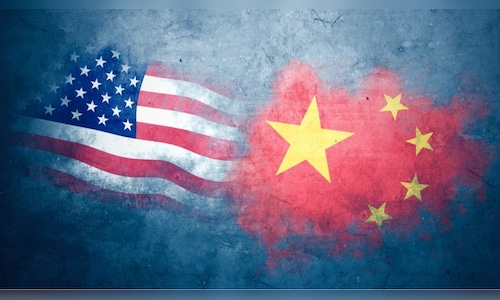China “must enhance its political capabilities and calmly respond to challenges brought about by changes in the domestic and international situation,” Xi told top officials including Politburo and State Council party members, according to a Xinhua News Agency report on Wednesday.
The comments coincide with President Donald Trump taking his most sweeping actions yet against China in his second term, raising the risk that ties may soon worsen.
Washington has ramped up pressure by restricting Beijing’s spending in US strategic sectors like tech and energy, urging Mexico to impose its own tariffs on Chinese imports, and pushing for fees on commercial ships made in China to counter its dominance in shipbuilding.
The White House is also working on tougher semiconductor restrictions and urging key allies to escalate their own limits on China’s chip industry, aiming to curb Beijing’s tech advancements, Bloomberg News reported. Rising tensions have already rattled global investors and dragged down Chinese stocks.
“America has, in my opinion, been itching for a fight with China — China hasn’t taken the bait,” Peter Alexander, managing director of Shanghai-based consultancy Z-Ben Advisors, told Bloomberg TV on Wednesday.
“But you know, there are sort of two realities that we’re heading towards,” he said. “I’m hoping it’s the one where an agreement can be made.”
For now, both countries appear keen to maintain a delicate relationship. Chinese Vice Premier He Lifeng spoke with Treasury Secretary Scott Bessent on Friday — the second high-level contact since Trump took office — indicating ongoing communication. Trump has also highlighted his personal ties with Xi and said last week that a new trade deal with China was possible.
Xi’s call for calm echoes China’s early approach to the trade war during Trump’s first term.
At the time, Beijing emphasized strategic patience and aimed to ease tensions through negotiations. But as the pressure grew, China shifted its position, adopting a more assertive stance with a set of tactics known as “wolf warrior” diplomacy, which reflected Beijing’s growing frustration with Washington’s unpredictability.
Now, however, China seems more experienced and prepared. Since Trump’s 10% tariff on Chinese goods took effect earlier this month, Beijing has responded quickly but carefully — targeting US products with tariffs designed to avoid major blowback on its own economy while signaling it has more ways to hit American companies if needed.
“We will resolutely respond to unilateral bullying practices of the US,” China’s Foreign Minister Wang Yi said at the Munich Security Conference this month.
Social Stability
In his latest remarks, Xi also called on top officials to maintain social stability, promote the sustained recovery of the economy and steadily improve people’s living standards.
China is trying to shake off a prolonged economic slowdown, with its strong exports facing growing pressure from trade tensions abroad. Last year, a series of violent public attacks stirred concern among residents, who connected these incidents to increasing economic woes.
Xi recently met with top Chinese entrepreneurs in what is seen as an effort to restore confidence in the private sector. Economists expect the upcoming national parliament meeting to introduce new measures to drive consumption.
“We do still think a forceful policy stimulus is needed for the market to boost consumer confidence, to make it more sustainable,” said Marcella Chow, global market strategist at JPMorgan Asset Management.
Speaking with Bloomberg TV on Wednesday, she warned that the recent rally in Chinese stocks raises the possibility that the government may become complacent about further action. More stable and predictable US-China trade relations will also be a key catalyst for spurring further gains in the Chinese market, she said.


